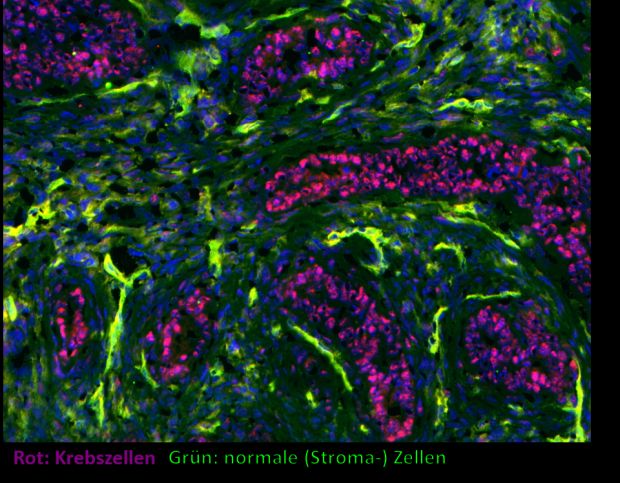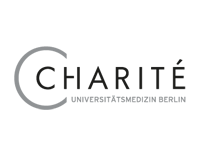Your selection
Research / 31.03.2020
Millions for cancer research

Thomas Blankenstein receives an ERC Advanced grant for cancer research. The scientist from the MDC wants to find out if T cells control the development of cancer by a process called immunosurveillance. For this purpose he now proposes a new research model.
The European Research Council (ERC) has announced it will support Professor Thomas Blankenstein to the tune of €2.5 million over five years. This year the ERC is awarding Advanced Grants to a total of 158 scientists across Europe.
“I am glad to announce a new round of ERC grants that will back cutting-edge, exploratory research, set to help Europe and the world to be better equipped for what the future may hold. That’s the role of blue sky research”, says Professor Mauro Ferrari, the President of the ERC in an official statement on March 31, 2020. “These senior research stars will cut new ground in a broad range of fields, including the area of health. I wish them all the best in this endeavour and, at this time of crisis, let me pay tribute to the heroic and invaluable work of the scientific community as a whole.”
In Blankenstein’s research group, scientists at the Max Delbrück Center for Molecular Medicine in the Helmholtz Association (MDC) and from Charité – Universitätsmedizin Berlin study specialized cells of the immune system called T cells. With his new research project Blankenstein wants to find out how T cells respond when their specific receptors detect a new antigen on a cancer cell. This line of research promises to identify more effective immunotherapy strategies for treating cancer.
Difficult conditions for research on immunosurveillance
Scientists have been discussing the immunosurveillance theory for some 50 years. The Australian virologist Sir Frank MacFarlane Burnet suspected in 1970 that the immune system is constantly on the lookout for cancer cells in order to eliminate them. According to his hypothesis, certain properties presented on the surface of cancer cells enable T cells to recognize tumors. “There is no doubt that T cells often detect cancer by recognizing these antigens and destroy tumor cells,” Blankenstein says. He assumes that there is a form of immunosurveillance that is triggered by virus-induced cancer, but says that “in spontaneously growing tumors we don’t yet know if this actually starts a program of destruction in the T cells.”
Blankenstein has been working for years on immune therapies against cancer. "In our new research project we want to find out how a T cell reacts as soon as it recognizes a tumor antigen," says Blankenstein. He wants to know: "Does the T cell then induce the destruction of the cancer cells? Does this mean that immunosurveillance is also possible for cancer that develops spontaneously in the body?
To answer these questions, Blankenstein suggests a new research approach. . Conventional research models, he says, have always a hitch. Scientists often study immunosurveillance in mice by using, for example, chemical substances to induce tumor growth in a normal cell. He explains the problem: “Either such research models fail to reflect tumor growth in humans or we cannot clearly say whether, and how, T cell behavior actually affects the tumor.”
A promising new research approach
What Blankenstein will do differently is transplant tumors into the mice. He has developed two mouse models for this purpose, but first he had to overcome several hurdles. The biggest problem, Blankenstein explains, is that an invasive procedure such as a transplant always causes inflammations in the mouse. This means it is difficult to investigate how T cells behave when cancer arises, because one doesn’t know if the T cells are just responding to the tumor antigen as a result of the interventional procedure on the tissue. Blankenstein’s research group has succeeded in reestablishing non inflammatory conditions that mimic sporadic cancer development in humans. He has not yet published his research models, which he will use for the first time in the new project. They allow him not only to regulate the presentation of tumor antigens, but also to measure T cells’ behavior to cancer recognition.
Blankenstein plans to hire additional postdocs and PhD students to support his new research project. He says: “The project could change the way we look at immunosurveillance in spontaneous tumor growth.”
About ERC Grants
The funding program of the European Research Council (ERC) is one of the most important in Europe. Since 2009, ERC Advanced Grants have covered all scientific disciplines. Recipients are awarded up to €2.5 million for a period of five years.
https://www.mdc-berlin.de/news/press/millions-cancer-research
www.mdc-berlin.de
Overview News
News Buch Berlin
From cell biology to CRISPR/Cas – new knowledge for schools
The Life Science Learning Lab at the Berlin-Buch research campus offers both school students and teachers the opportunity to immerse themselves in science. This year, the facility celebrates its 25th ...
more ...ERC grants Berlin scientists € 2.5 million each
Neuroscientists Gary Lewin and James Poulet at the Max Delbrück Center for Molecular Medicine have won highly coveted and competitive ERC Advanced Grants to study pain and the neural mechanisms that u...
more ...The Protein Expert
Prof. Dr. Fan Liu from the Leibniz-Forschungsinstitut für Molekulare Pharmakologie (FMP) has recently received several awards for her contributions to the field of cross-linking mass spectrometry.
more ...Events Buch Berlin
06.05.2024, 09:00
Realtime PCR und digital PCR Kurs
Der RealTime PCR und Digital PCR Kurs richtet sich an erfahrene PCR Anwender*innen und an Einsteiger*innen. Wichtige PCR Grundlagen werden erörtert, bevor die RealTime PCR besprochen und Genexpression...
more ...22.06.2024, 16:00
Lange Nacht der Wissenschaften 2024
Save the date!
more ...







